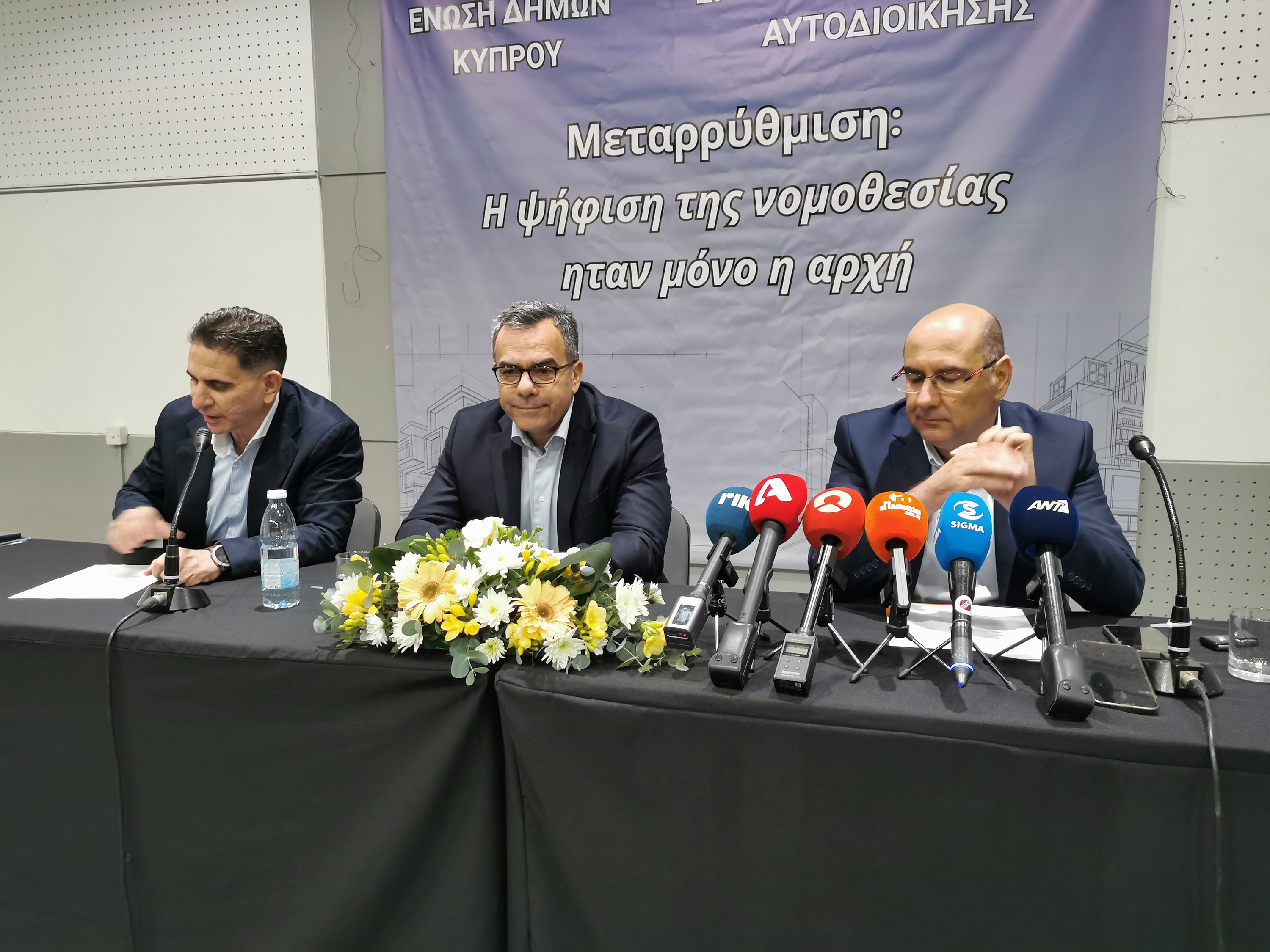Municipalities are struggling to survive, president of their union Andreas Vyras said on Friday, highlighting that Cyprus has the lowest state funding for local authorities in the EU.
“It is unthinkable to speak of a new era when state funding for 2025 stands at just 1.06 per cent of the national budget – the lowest percentage in the EU,” Vyras told a press conference, which was attended by the five district governors, mayors, deputy mayors and local administration officers.
He stressed that municipalities have been burdened with additional responsibilities and are finding it increasingly difficult to meet public expectations.
The total of €117 million allocated to local administration is inadequate, Vyras said, adding that since the law setting this amount was passed in 2022, the sum has been “substantially reduced by 20 per cent.”
“Cyprus cannot remain at 1 per cent,” he added, pointing out that Denmark allocates 30 per cent of its state budget to local administration, Finland and Sweden up to 25 per cent, and “even Greece allocates at least 2.5 per cent.”
He reiterated a longstanding demand for a specific percentage of the national budget to be earmarked for local authorities – adjusted annually according to economic conditions, inflation, and other critical indices.
“This fixed amount, as defined by the law today, is totally unacceptable.”
Vyras warned that without adequate funding, institutional protection, and official recognition of the role of local authorities, the reform process would fail. “But we will not allow that to happen,” he said.
Asked how the municipalities intend to proceed, Vyras said that informing the public is the first step. The next step, he added, is to initiate dialogue with the government. “If it becomes clear that dialogue is not producing results, we will respond dynamically,” he warned.
He noted that the recent allocation of €15 million to local authorities came after their strong reactions and helped resolve “other unreasonable issues.”
“We acknowledge the government’s positive step in providing €15 million for road maintenance,” he said.
However, municipalities are now expected to incorporate 63 communities and take on additional responsibilities that exceed €25 million annually in extra costs, he added.
“Today, our concerns are being confirmed. We had warned in time that, without the necessary support, reforms would not succeed.”
Vyras acknowledged that municipal payroll expenses have significantly shrunk since the reforms began. However, he clarified that “the increased pressure comes from the broader responsibilities and public demands placed on municipalities – not from the cost of elected officials.”
He also criticised recent tax and fee hikes, arguing that they limit the flexibility and reach of municipal authorities. He suggested that additional funds could be sourced from the Recovery and Resilience Fund.
Vyras concluded that both the union and the district local authority organisations share a common vision: a strong and autonomous local government capable of serving the people effectively.
Nicosia district governor Constantinos Yiorkadjis added that local authorities should not be reliant on central government for funding. While supporting the reforms, he also called for reduced operating costs across local administrations.
“Nine months since the launch of the district organisations, it is clear that radical restructuring of local administration was not only necessary but imperative,” he said.
Yiorkadjis emphasised the need to strengthen these organisations to achieve full autonomy. He noted that the reforms have already led to some positive outcomes, including improved efficiency through the merging of services – especially in suburban areas.
He cited water supply, sewerage, building permits and management of listed and dangerous buildings as areas that have benefited from these changes.
However, further progress is needed, particularly in ensuring the independence of district organisations and better coordination between ministries.
“District organisations currently have no voice or role. They have not been invited to, nor have they participated in, consultations and decision-making processes – on issues like sewerage,” he said.
“The involvement of district organisations not just as observers, but as equal and active participants, is a necessary precondition for any serious progress in the circular economy and proper sewerage management,” Yiorkadjis concluded.






Click here to change your cookie preferences